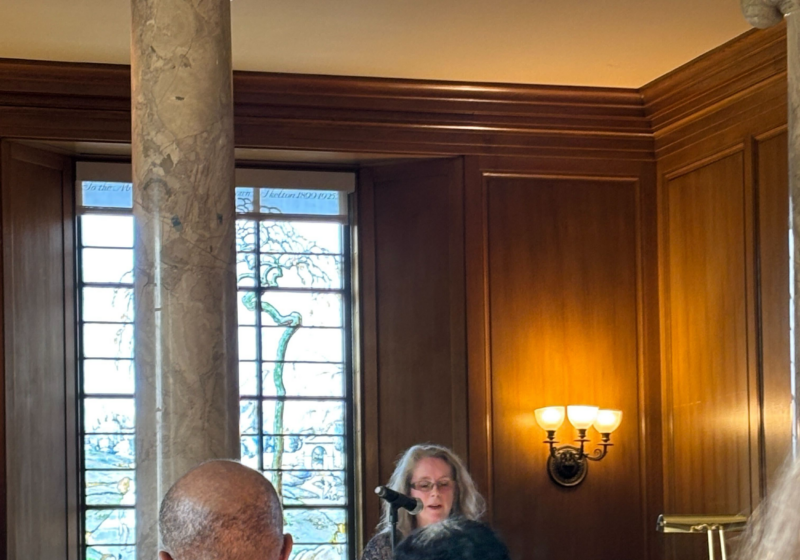We’ve all experienced technological snafus on Zoom. Back in March, practically everyone was trying to figure out how to screen share, how to mute and unmute yourself, and maybe even the inner workings of Zoom annotation.
It’s safe to say that most of us are now somewhat well-versed in the ways of videoconferencing. And yet, despite their accolades and cutting-edge research skills, some professors are still figuring out the nuts and bolts of the virtual classroom.
Older people in general have a tendency to resign themselves to helplessness when it comes to the latest tech — a trend we’re disappointed to notice some of our professors following.
Several professors who have chosen to conduct hybrid classes this fall seem to have done so out of a fear of technology. When something tech-y goes wrong, the professor barely attempts to fix it.
The speakers in the class aren’t attached to the computer, meaning that remote students can’t be heard? What a shame, those students will now participate entirely through the chat.
Are you having WiFi issues? That’s too bad, because in theory, everyone should be able to make it to the live Zoom class, so we aren’t recording.
We don’t expect professors to be perfect, and of course, no one can anticipate all potential problems.
But we’re almost halfway through the semester now, and the same issues that plagued the first day of classes have now become the norm for certain courses.
Students are constantly encouraged to solve problems in original ways, and whip up creative, out-of-the-box solutions to just about everything, from essays to computer science projects. Instead of leading by example, we’re disappointed to watch our supposedly cutting-edge professors hunker down with what they know.
At the very least, professors should be asking students for feedback. That should happen all the time, but it’s even more crucial this semester.
Again, we don’t expect our professors to do everything perfectly, but we do expect that they put effort into shaping their courses so that they work for all. The best way to achieve this is to make it a collaborative effort.
Ask students what they need or would like to see. Ask them what is and isn’t working, and why or why not. We want to help you help us.
Credit where credit is due: Not all professors are dropping the virtual ball. Many professors have no problem with the online format, and have taken advantages of the opportunities the virtual classroom has to offer.
In some lecture classes, TAs or classroom assistants monitor the chat, fielding all the stupid (and smart) questions that would normally slow the professor down. In smaller, discussion-based courses, the chat can facilitate a smoother discussion and stop people from accidentally talking over one another, as it provides a record of who raised their hand first. Screen sharing allows students in recorded Chem workshops to have perfect notes that they can re-visit as they need.
For once, the onus isn’t only on administration here. The good folks at ECM put a lot of time and effort over the summer into assisting professors who may need help adjusting to a hybrid and/or virtual format. They installed new technology in several classrooms, they offered Zoom training sessions, and they created an entirely new position for student workers with the exact purpose of aiding professors with any issues they still might not know how to address.
If you want to schedule an appointment to familiarize yourself with your classroom and its capabilities, you could do that. If you’re still running into issues, ask for help or come up with a new plan. Don’t sacrifice your students’ ability to learn something new simply because you’re not willing to do the same.
And technology being hard is not a good reason. Put your PhD, which shows you’re highly capable of self-directed research, to use and learn something new.
It’s no secret some professors see teaching as a secondary job. But teaching is as much a part of a professor’s job as their research. Even if you’re more personally invested in your research, it’s literally part of your job to teach undergrads.
Course quality isn’t a small issue. The student body pays collective millions annually for rigorous, globally competitive coursework.There are many important aspects to education, but the single most direct and important one is class. In a hybrid world, technological aptitude is an important aspect of teaching, and we need Zoom courses to work in order to get our money’s worth.
Be more creative in changing the format of your class to accommodate students who can’t always make it to in-person sessions. Clearly communicate all assignments and their deadlines through Blackboard or email.
Again, in fairness, many professors have adapted quite well. They ask students for feedback, they try to keep their courses interactive and inclusive for those learning remotely or asynchronously, and they get to class early to test the technology.
Additionally, professors are dealing with all sorts of new challenges. Faculty were hit hardest by retirement benefit contribution cuts. Many professors who are parents are also helping their kids through their own virtual classes.
But students are going through new challenges, too. It feels like students are being unfairly expected to adapt not only to new technology, but to their professors’ unwillingness to learn it.
The Editorial Board is a weekly Opinions article representing the view of the Campus Times, co-written by Editor-in-Chief Hailie Higgins, Publisher An Nguyen, Managing Editor Corey Miller-Williams, Features Editor Micah Greenberg, and Opinions Editor Lucy Farnham.






